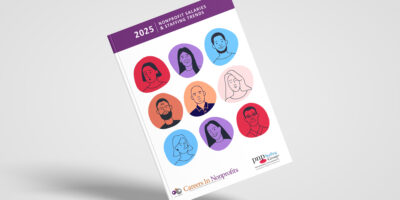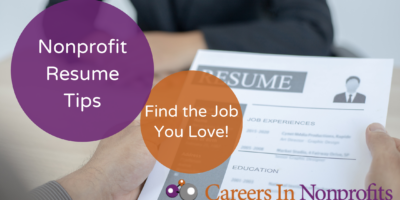First, before your first interview, check the employer’s Careers page on their website for benefits information. Feel free to ask about available benefits anytime, but if you ask during the initial screening, don’t worry if their answer is vague (“Oh, you know, we offer the standard stuff—health insurance, paid vacation, holidays, and sick leave...”).
If you’re invited for another interview, you can dig deeper. Once they let you know that you’ve made it to the final round of considerations, you’re entitled to a straightforward answer about what their organization offers, and what they’re giving you (there might be some benefits you’re not eligible for until you’ve been with them for a certain amount of time). If they try to dodge the question and change the subject or refuse to answer, ask if you can speak with the person who can share a detail summary of the benefits.
Negotiating benefits usually comes after the base salary’s been nailed down, since benefits can make up for the shortfall between what was offered and what you were hoping for. If the employer offers a lower salary than expected due to their budget and you still want to work for them, ask if you can have an earlier performance and salary review, or whether you’re eligible for performance-based bonuses or a signing bonus.
You can ask for anything you’d like, but it’s best to prioritize your top 10 most wanted benefits and start negotiating at #1 first. If you’re already on a health insurance plan that is comparable to or better than the one offered by the employer, consider declining it in exchange for something that’s really important to you. Make sure you get your due, but don’t get caught up trying to gain benefits you don’t really care about just to “win.”
While focusing on the important things like insurance and retirement plans, don’t forget about the smaller stuff that employers are often willing to accommodate: compensatory time (important if you’re exempt from earning overtime pay), professional development and training, tuition subsidy or reimbursement, a new computer/laptop or software upgrades, a new smartphone or subsidizing your current plan, free gym membership and/or fitness incentives, and transportation/parking.
Once you’ve verbally accepted the offer, consider it set in stone. Changing your mind about what you want while you’re waiting for them to send you the offer letter—or holding your signature for ransom—will not only make you look bad, but might make the employer rescind their offer entirely.
Use your network
Reach out to your instructors and the career advisors where you’re getting your education early on and make sure they know what your goals upon graduating and long-term are. Even if it’s an online program, ask to arrange a phone or Skype conversation. They’ll at least be able to guide your coursework and review your resume. If it’s not too late, they can point you to internship and volunteer opportunities so you can build up your job experience. You can ask them to be a reference as well. Don’t forget to reach out to classmates! Ask where and how they’re job-searching for ideas you can use.
Make sure your family, friends, and everyone on your social media know you just got a new credential and what kind of work you're looking for. You never know what people or resources they can connect you with. People love to help out and may volunteer, before you even ask, to pass along your resume or make an introduction. Requesting informational interviews with people doing what you want to do will help you get on the right track and can lead to a valuable mentoring relationships. Just remember to never be pushy and always send thank you notes!
Bring attention to and focus on the criteria you DO meet
Don’t start your cover letter with “I don’t have these things you’re looking for, but…” If there are too many reasons why a hiring manager would dismiss you out of hand, or you’re not sure you can handle the job as described, find something else to apply for. Read job descriptions carefully and be clear on what’s required and what’s preferred. Make sure you meet most of the required criteria so you don’t waste your time or their time. Emphasize why you’re a great fit for the role and anything that makes you stand out. If you have a personal connection to the nonprofit’s mission or have volunteered with them before, let them know about it in your cover letter!
If you studied something directly related to the career you want to pursue, highlight relevant skills and knowledge you gained from your coursework, especially your familiarity with any new practices, regulations that affect the industry, and software. Even if your education isn’t directly related, show how what you learned is still relevant or gives you unique perspective and experience that can be tied into the job description of positions you’re applying for.
Also, don’t discredit your soft skills! Assuming you have previous work experience, just not in the area you’re trying to break into, highlight your ability to work in and lead a team, or stay organized to meet multiple project deadlines. Advanced, professional writing and verbal communication skills are in high demand, so be sure to mention if you have extensive public speaking experience or drafted important client communications at a previous job.
Cover letters are a great way to showcase why you’re the best person for the job, but it’s easy to write a bad one. Here are three things to keep in mind:
1. Your cover letter is not your resume.
Don’t waste space by repeating what’s on your resume. Instead, expand on key responsibilities and accomplishments in your previous roles. What hard and soft skills have you been able to master that aren’t obvious on your resume? What did you learn about yourself and your work preferences? Make sure to connect everything back to why you’re a great fit for the position you’re applying for.
2. Personalize your letter as much as possible.
Do some research and find the name of the person who will be reviewing your application. If you can’t find it or are unsure how to address someone, call the organization and ask. This may seem mortifying, but you’ll be more mortified if the “Mr. Jordan Gray” you sent your application is actually “Dr. Jordan Gray,” a woman with a PhD in Economics. As a last resort, address it to the hiring manager or search committee for the specific position you’re applying to.
Stay away from fluffy buzzwords. They don’t say much about you and will make the hiring manager roll their eyes. Everyone calls themselves a “team player” and a “people person.” Explain why and how you deserve those labels instead: “I directed 50+ calls per hour to 5 other people on my team, as well as taking them myself. This year, I won the Shout-Out Award for being the most frequently named staff member in customer surveys for exemplary service.”
3. Keep it short.
There’s a lot you can say in a cover letter, but don’t exceed a page. (The majority of hiring managers would prefer if you kept your cover letter to just half a page.) If the application format or job post specifies a certain length for your cover letter, make sure you follow those instructions. They’ll definitely weed out the people who don’t.
If your cover letter is too long, you may be trying to say too much. Pare your accomplishments down to the three most impressive ones. Don’t forget to take out sentences with information that’s elsewhere on your application, like “My name is John Smith. I graduated with a Bachelor of Science in Finance in May 2016.”
Cut out passive voice and adverbs as much as possible, which make your sentences longer and weaken the impact of your words. Online tools like Hemingway can pinpoint these issues, but make sure you have a real person look over your cover letter, too. They’ll also be able to help you spot fluffy buzzwords that you should either get rid of or re-work into stronger statements.
The short answer here is that it’s relative. The question here shouldn’t necessarily be about how long one should stay but rather how to optimize an entry level role. Of course, no one’s expecting you to stay for ten years—but two years? Absolutely; there’s a point in the beginning of everyone’s career where you have to pay your dues. Sure, you may not be in the ideal role at the moment, but there are steps you can take to make the best of your entry level job. Some things to consider:
Do you have a career map? Do you have an idea of where you’d like to head next and how you can flourish in your current position? One great way to illustrate your next steps and better visualize your goals is by making a career map. Career mapping is a great way to view your progress, set goals and anticipate changes; it’s as simple as putting your ambitions down on paper and assigning them timeframes. For example, you can designate two years or so to your current role and allot certain professional milestones to each month or every six months.
Are you still learning? Building and expanding upon skills and learning from mentors and colleagues are often what keep an individual engaged in the workplace. If you’ve found that you haven’t been absorbing as much as you could, consider reestablishing your connections to your mentors and colleagues. You could ask your mentor to coffee if you haven’t in a while, or inquire into your desk mate’s latest project. This serves to foster a productive relationship between you and your acquaintances; you might also learn something new over cappuccinos!
How’s your work life balance? Many times, articles and discussions about work life balance seem to be directed at those who are in high powered careers and have been in them for years. Though that’s not untrue, work life balance is often overlooked in entry level candidates—many who tend to let the late nights in the office build and their emotionally fulfilling side projects dwindle. Even if you’re right out of the gate and the greenest person in the office, your work life balance should be a priority. Your time in your entry level job will only seem longer and drier when you’re working 60-hour weeks and haven’t seen your friends and family in months!
How long you stay in an entry level position depends on your goals (whether they’re long-term or short-term) and your circumstances. Regardless of what they are, consider volunteering, freelancing or working on passion projects on the side to build new skills and gain experience. This way, you stay refreshed and cognizant of life outside of your work, which will only serve to enrich you and make you all the better at tackling challenges in not only your current role, but in roles to come!






